Ron Howard: Creating vision of a future Mars colony
- Published
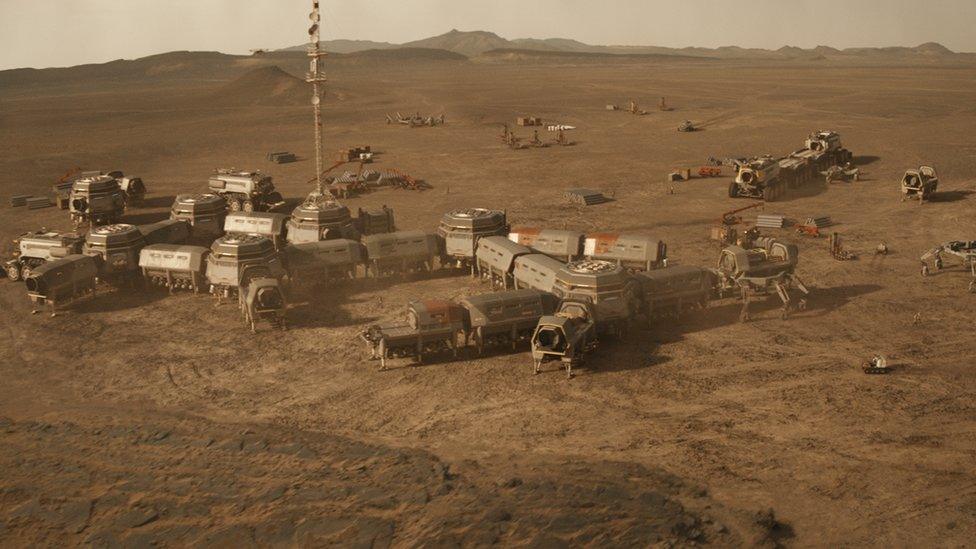
The series Mars envisages how a pioneer human settlement might function on the Red Planet
To mark the second season of the television series Mars, Hollywood director Ron Howard talked to the BBC about creating a realistic depiction of the first human colonies on the Red Planet.
If humankind is to expand out into the Universe, then Mars is likely to be our first stepping stone. With an atmosphere largely consisting of carbon dioxide and temperatures that vary between 20C and -125C, the Red Planet isn't exactly ideal for human occupation.
We'd have to adapt to living almost entirely within sealed habitats - so outdoors-y types need not apply.
But there is perhaps a bigger issue in play. Colonising Mars would provide humankind with a lifeboat, ensuring our species' survival if some giant catastrophe were to befall civilisation - let's say an asteroid strike, or an ecological breakdown.
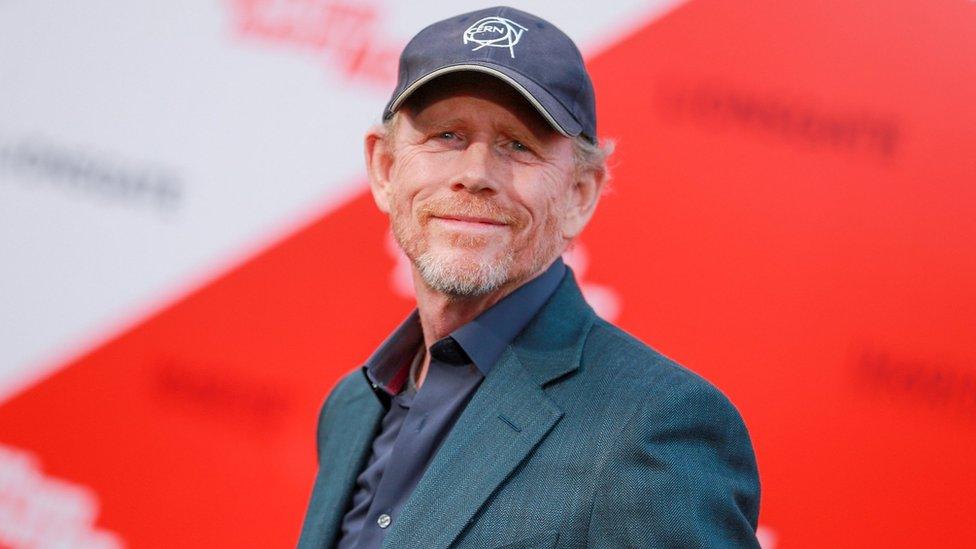
Director and producer Ron Howard says the original space race demonstrated how much humans were capable of
It's something that several big names - such as SpaceX founder Elon Musk - are thinking hard about.
Through a hybrid of drama and documentary, National Geographic's Mars series, external explores how humans would establish themselves as an interplanetary species. Season two of the series begins on 11 November.
Mars' Oscar-winning executive producers Ron Howard and Brian Grazer are responsible for a long list of hit Hollywood movies, including Splash, Cocoon, A Beautiful Mind and Apollo 13, as well as landmark television series such as From the Earth to the Moon, which told the story of the space race.
Ron Howard told BBC News that while he's a big fan of space exploration, he was not initially sold on the importance of settling Mars.
"When I first began the series a couple of years ago, I thought it was a great idea to do an adventure about going to Mars and we should make it as real as we possibly could," Mr Howard says.
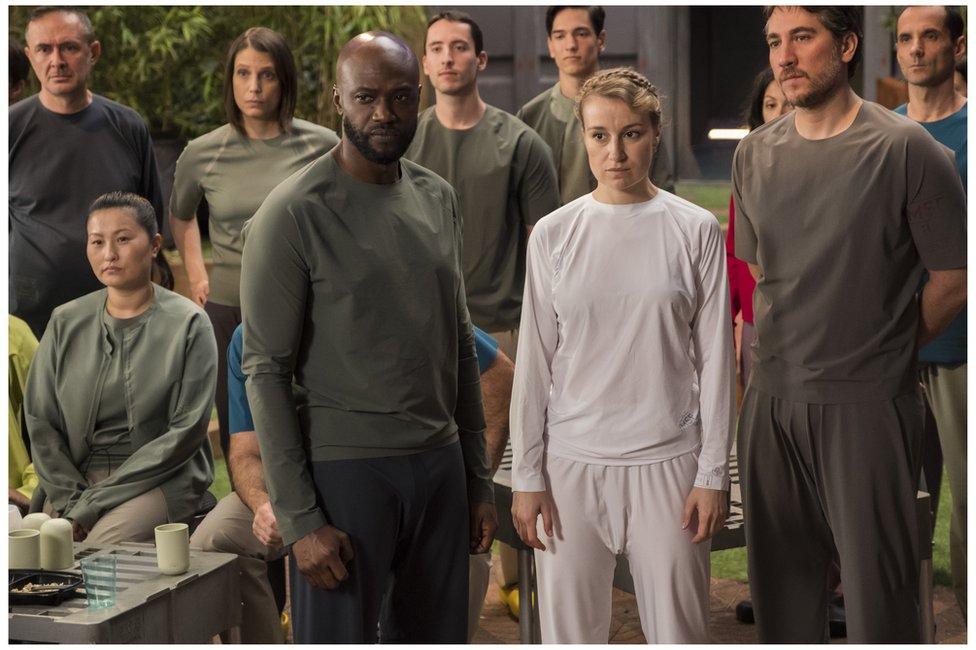
The series explores conflict between scientific and commercial interests in a burgeoning Mars colony
"But I wasn't sure I believed in the idea of going to Mars. I knew I believed in the idea of space exploration… and any show that advocated that was making a statement that was healthy and positive for human beings - to inspire their imaginations to look outward.
"But as I have gone through the process of working on the show and interviewing some of the big thinkers, I now really do believe in it strategically - I don't mean that from a military standpoint, I mean it from the point of the ongoing evolution of the human species… I not only believe it's viable, I'm a big supporter."
Season one of Mars followed the crew of the spacecraft Daedalus, as the astronauts attempted to create a pioneer settlement on the Red Planet in 2033. Season two is set nine years later and follows the fortunes of the first fully-fledged colony. The script tackles the everyday challenges of the settlers, including the first births on the Red Planet, outbreaks of disease and mechanical breakdowns.
It also documents the tensions between scientists who want to study the planet and private companies who want to profit from its natural resources.
"Here in our show, we have interests that are not entirely aligned in the expedition. Private sector vs this international group of scientists. And it hasn't all been worked out on Earth; they each have their agendas and their orders. It's in the fine print that the conflict develops," said Mr Howard.
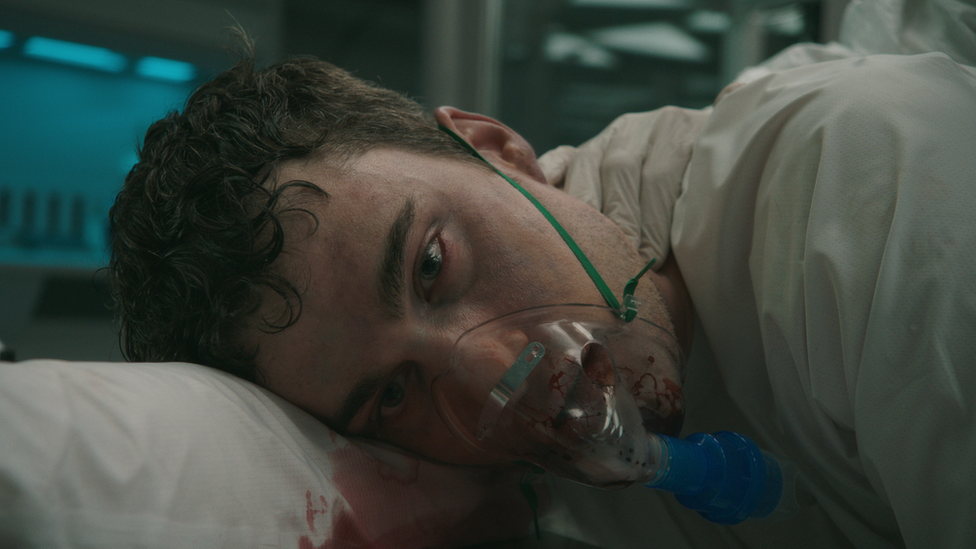
An outbreak of disease strikes the colony in season two
The series features an international organisation that is responsible for the scientific exploration of Mars. Indeed, many experts have argued that spreading the effort and cost of a real-life crewed Mars mission between countries is the only viable course of action if we want to get there anytime soon.
Yet, with US support for the International Space Station proposed to end in 2024, and reliance on the Russian Soyuz rocket for flights to the space station to cease in coming years, it might seem that we're approaching the culmination of an unprecedented era of international co-operation in human spaceflight.
Viewpoint: When will we send humans to Mars?
Viewpoint: Should we send humans to Mars?
Asked what would be needed to make a real Mars settlement a success, Mr Howard told me: "I think if there's a lesson in our season, it's that the more co-ordinated human beings can be internationally, both in terms of scientific exploration, national interests and corporate interests, the more alignment the better."
The documentary segments of season one featured some high-profile real-life stories, such as the daily operations of Musk's SpaceX and astronaut Scott Kelly's year-long mission aboard the International Space Station in 2015/2016. Mr Howard said he thought it would initially be more difficult to find case studies for season two, but found plentiful material at one of Earth's last frontiers - the Arctic. Here, the interests of oil-drilling abut with those of scientific researchers and environmentalists on a regular basis.
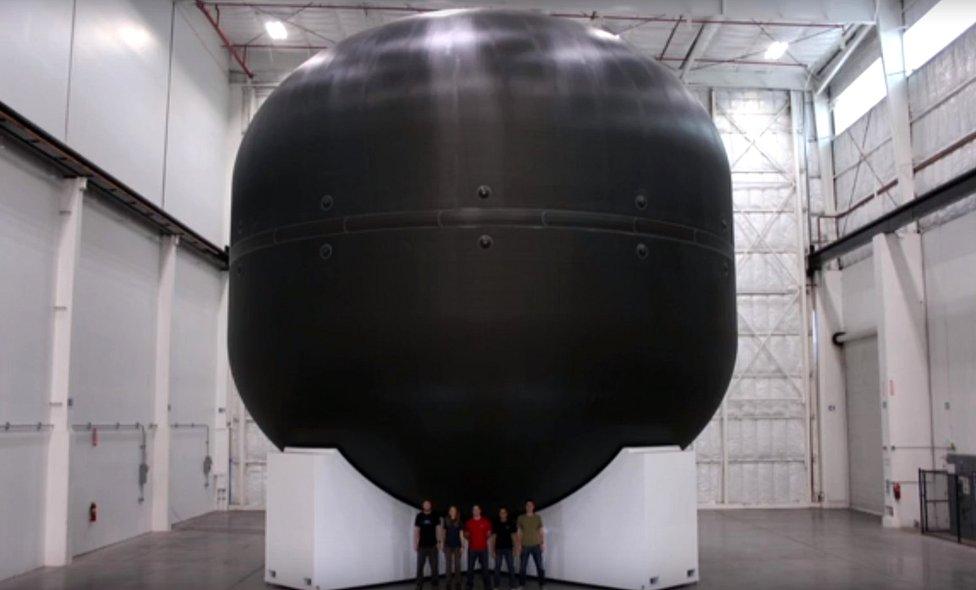
The series drew on real-life plans from SpaceX to send humans to Mars; this shows the huge prototype fuel tank for a rocket
"Exploring various aspects of the parallel stories where industry and science are clashing, and the ecology of the planet is at risk, aligned beautifully with what it would take to begin really settling on Mars, where human beings are having to really impact their environment.
"So it turned out to be very interesting and useful. Also, because we learned a lot in season one, I think we did a better job of targeting the documentary material that would support and reinforce the drama of the scripted material, so I think the whole thing is even a little bit more seamless. If audiences respond well to this season, and we do more seasons, we're already understanding that there are some great ways to keep applying the documentary side to the ongoing adventure of colonisation and beyond."
Elon Musk has outlined his real-life plans for Mars colonisation in some detail. Though there is no firm timeline, he envisions a fully reusable transportation system that would take 80 days to get to Mars. His rocket and spaceship combination would stand 122 metres tall - bigger than the Apollo-era Saturn V rocket - and carry 100 people at a time.
Musk has said he believes a Mars colony would need about a million people to make it self-sustaining - one of his ultimate hopes.
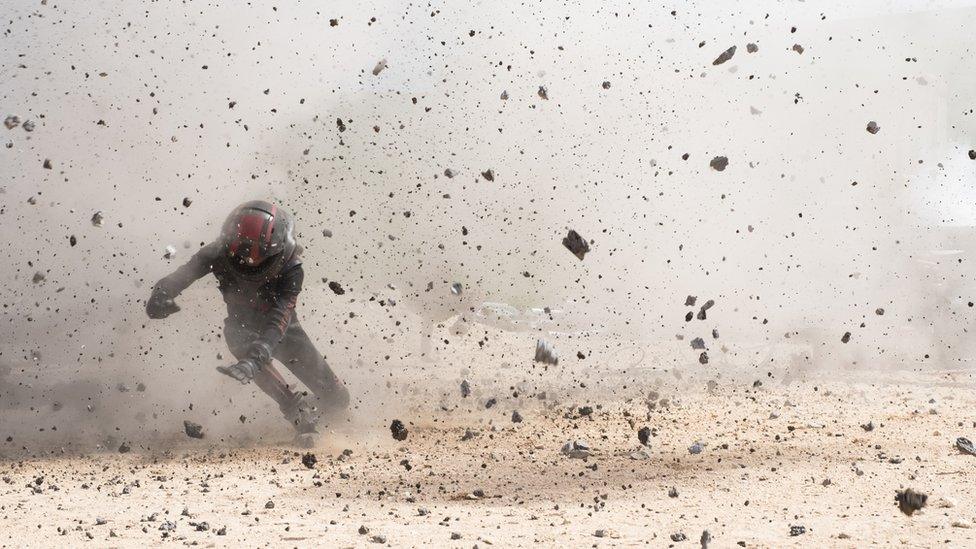
The colonists run a gamut of challenges as they strive to make humans an interplanetary species
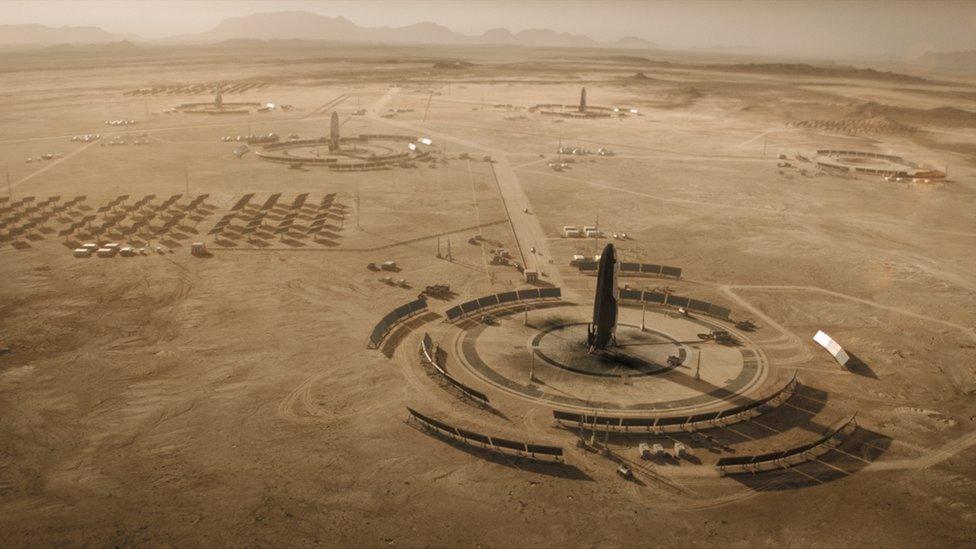
The scientists have established a colony known as Olympus Town
Mr Howard said the series drew on some of the engineering ideas proposed by SpaceX, Nasa and other sources. "The spaceniks can probably see it's its own style of hybrid. We didn't use any props from other movies, so we had to create everything. We did our own designs and for our production team, on a TV budget, it was probably like throwing together your own blueprint for going to Mars."
Speaking about the new series to a small group of journalists, Mr Howard explained why he thought space exploration had such enduring appeal: "My fascination started as a boy witnessing the space race and all that was accomplished.
"It made the whole world feel like human beings were capable of so much more and there was so much to look forward to. So between the mystery of space and the drama and excitement and thrill of humankind's ability to explore it and actually experience it - it has just captured our imagination.
"One of the things I learned from working on Apollo 13 and interviewing so many of the astronauts who went on the Moon and walked on the Moon - they were so matter of fact about it."
He added: "To them it was just proof it was possible to go, and that was the next horizon. That's what human beings do, they look to the horizon and they want to go there."
MARS returns for a second season, external on Sunday 11 November at 20:00 GMT on National Geographic